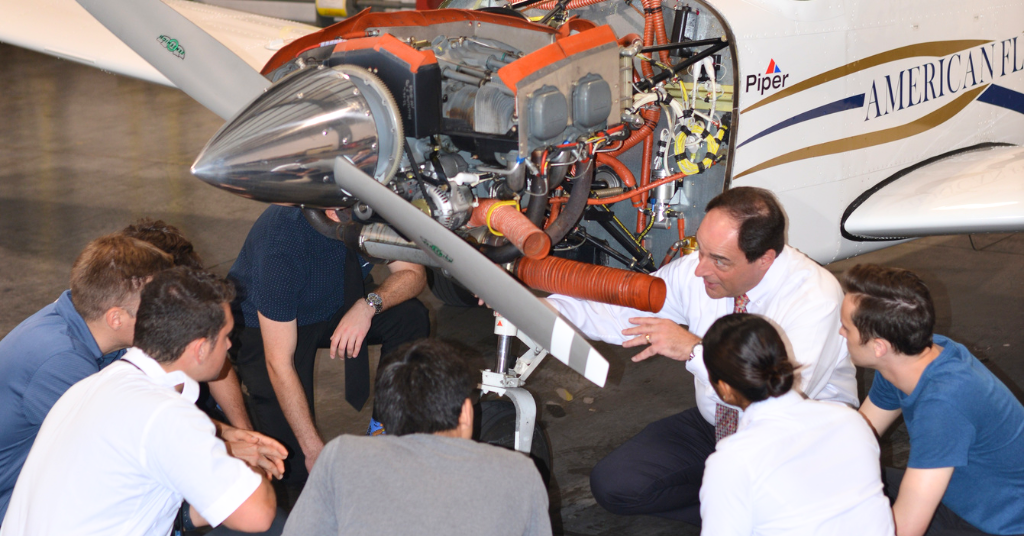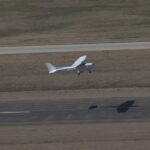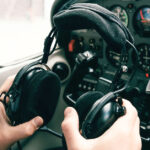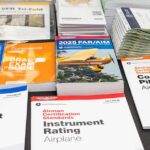We live in a society of instant gratification in which finding the “cheapest” option is often more important than finding a quality option.
The value of education is not always the priority, and this is especially true when it comes to aviation. For many, the hourly cost has become more important than the overall value and quality of the training, and many wanna-be pilots are finding out the ramifications of this the hard way.
There is no homage paid to quality or value. In a society of instant gratification, the concepts of commitment and responsibility have been replaced by what seems to be an attitude of “I want it all now.” We keep finding faster, less expensive ways of doing things, and we assume that cheaper and quicker means “better.”
There are two types of schools in today’s general aviation education system. There are the schools that teach pilots how to pass the tests, and then there are the schools that teach pilots the information so that, no matter what question is asked, they will actually know the answer.
It may surprise you that certain schools will actually fly students to specific examiners because they have the “gouge” for the checkride. It may also surprise you that many schools guarantee students jobs as flight instructors before they even learn how to fly. That’s right: before they know the quality of the individual, they are already offering them a job. They do this to secure enrollment. The problem is that many students don’t realize the impact of this policy on the quality of their instructors until it’s too late.
There are consequences to a school teaching to the checkride. First and foremost, the student ends up lacking a depth of knowledge. After all, anyone can memorize something, but memorizing something is not the same as understanding it or being able to explain it in depth. This also makes advancing to more complex aircraft more difficult because these types of pilots do not have a strong foundation on which to build. Many of them try to memorize their way through their first jobs after being flight instructors, only to realize that the amount of information they need to know is impossible to keep up with, and they end up washing out of the industry.
What amazes me even more are the pilots who fly for pleasure who still take this memorization approach. When they do this, they demonstrate a complete lack of regard for the safety of those who will be flying with them – namely, their families. Unfortunately, we see stories like this several times each year, and it is heartbreaking.
American Flyers has been training pilots consistently since 1939. In those eighty-four years, we have learned a lot about flight training. One of the most important things we have learned is that many skills can and should be taught on the ground. When it comes to systems and understanding how they work, the best way to teach them is to get hands-on experience. Seeing and touching the engine and its various components helps pilots better understand how to mitigate system issues to ensure continued flight safety.
In discussions with prospective pilots, I usually compare becoming a pilot to becoming a surgeon. Surgeons are directly responsible for another’s life, safety, and well-being. They make split-second life-or-death decisions, and they must be able to multitask on a level impossible for most people.
What is the difference between these responsibilities and what is required or expected of a pilot? The answer is nothing. Yet a surgeon takes their education extremely seriously and spends a great deal of time learning, researching, and perfecting their skills. This not only prepares them for more complex procedures, but it also prepares them for handling emergencies when they occur.
So my question is this: if flying is on par with the responsibilities of a surgeon, why are so many people willing to take shortcuts and memorize information in order to get their licenses? And why does our industry allow them to do so?
It becomes the responsibility of the individual schools to create higher standards and hold prospective pilots to those standards.
There will always be those schools that brag about having the largest fleet, a guaranteed job flow to the airlines, or the assurance of jobs as flight instructors. While we can’t do anything about those schools, we can try to educate prospective students before it’s too late.
I don’t believe that someone willing to invest close to $100,000 for their training wakes up in the morning and commits to shortcuts. No, most people go into flight training expecting to work hard. That is until they find a school that tells them they will get more hours faster in their school than anywhere else. All they need to do is:
1) Solo as quickly as possible without any regard for the quality or quantity of education received.
2) Prepare for the FAA knowledge test by memorizing the answers to the questions rather than understanding the information.
3) Fly with another student so they can both log pilot-in-command time, thus saving money at the cost of gaining meaningful experience.
4) Fly with contract instructors who are only focused on building hours and not committed to delivering a quality education.
5) Save money by sitting in front of a computer by themselves for ground knowledge, without anyone to provide a depth-of-knowledge explanation.
6) Prepare for their checkride by memorizing what’s needed for specific tasks for a specific examiner rather than being prepared for anything an examiner might ask.
You have one chance to do your training right from the start. Choose a school as a surgeon would: look for quality, integrity, and a proven track record of educational success. Don’t select a school because it’s cheaper or they claim to have an “in” with an airline.
There is no rush to this process. The jobs will still be there when you earn your certificates. What is far more important as a flight training student is to ensure you receive the best quality education available – not the cheapest course.










